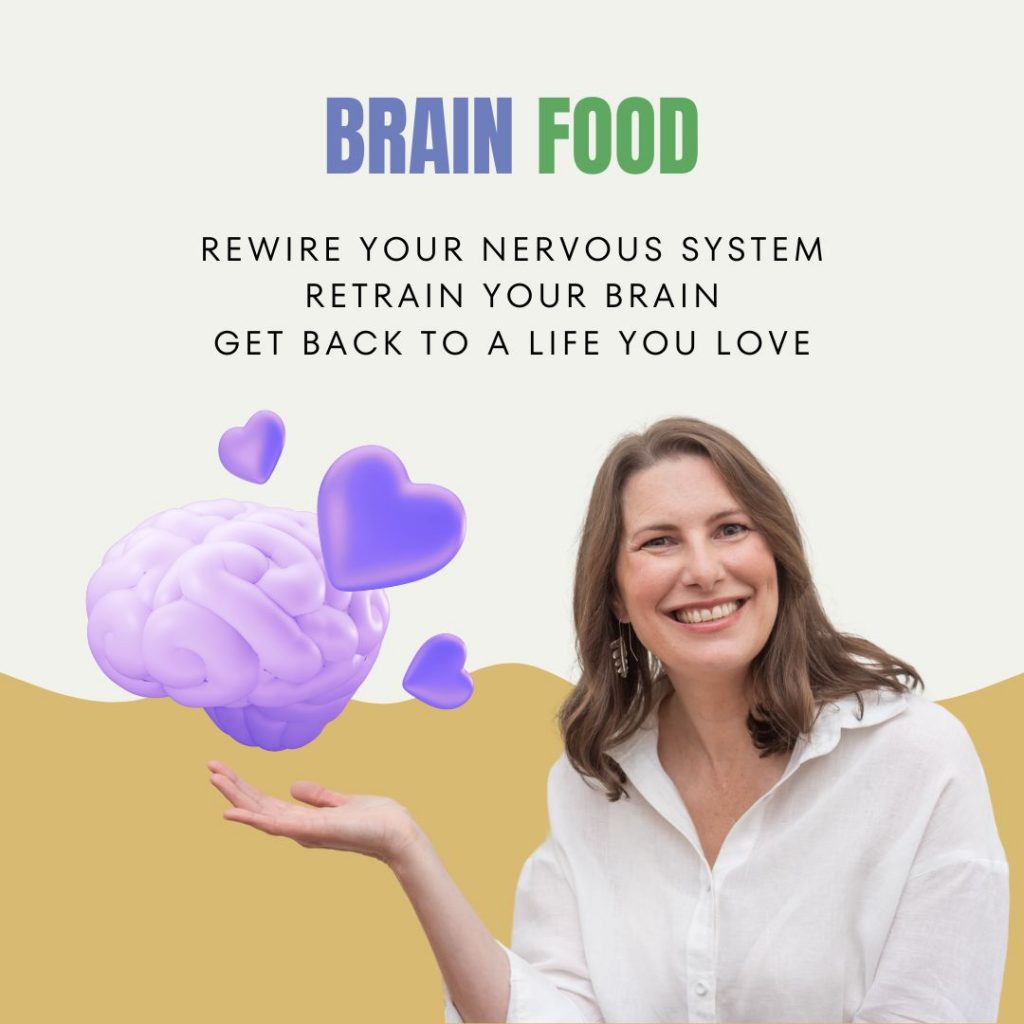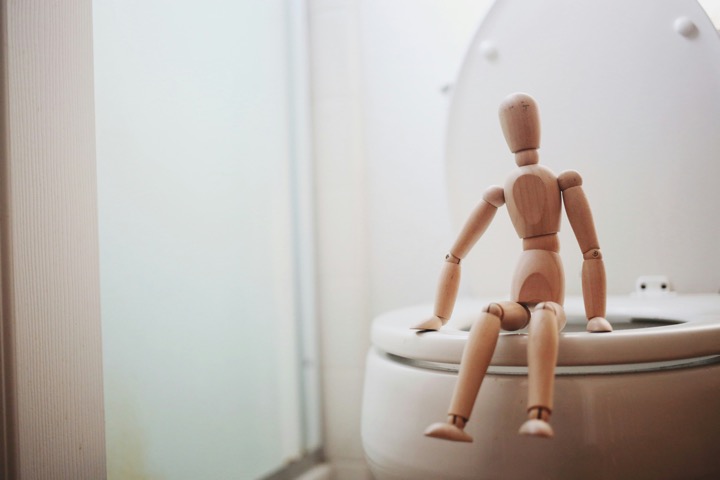Talking about digestive issues such as constipation and bowel movements might not be the most pleasant topic, but it’s a crucial conversation when it comes to understanding gut health, especially for those dealing with histamine intolerance.
The health of our gut has a profound impact on various bodily functions, including the regulation of histamines, which are chemicals involved in immune responses and inflammation. When the digestive system isn’t functioning optimally, it can exacerbate or cause symptoms of histamine intolerance. Therefore, understanding the importance of gut health, and addressing issues like constipation, is essential for those managing histamine intolerance.
In this article, we’ll look more into constipation, the links to the nervous system, motility and common misconceptions regarding constipation.
What is Constipation?
As we know, constipation is a common digestive issue characterized by infrequent bowel movements, difficulty passing stools or a feeling of incomplete evacuation. Typically, defined by the medical world as fewer than three times per week. However, as a nutritionist, I also consider going less than once a day to be a sign of constipation. Ideally we should all go 1-3 times per day with easy to pass banna type stools!
Some causes of constipation include:
- Poor dietary habits, such as low fibre intake and inadequate hydration
- Side effects of certain medications
- Thyroid disorders
- Small Intestinal Bacterial Overgrowth (SIBO)
- Irritable Bowel Syndrome (IBS)
- Parasitic infections
- Psychological factors like stress, anxiety, and depression
- Lack of physical activity
- Inflammatory Bowel Disease (IBD)
- Intestinal obstructions
What is an optimal bowel movement?
A normal bowel movement can vary greatly among individuals, but there are several key characteristics that generally define what is considered healthy:
- Frequency: Optimal bowel movements can occur anywhere from 1-3 times a day.
- Consistency: Optimal stools are typically soft and formed, resembling a sausage or snake, and are easy to pass without straining. The Bristol Stool Chart classifies normal stools as types 3 and 4.
- Colour: A typical healthy stool is medium to dark brown. Variations can occur due to diet or medication, but consistently unusual colours may indicate an issue.
- Odour: While not particularly pleasant, a normal bowel movement has a distinct but not overly foul smell. Extremely foul-smelling stools can be a sign of malabsorption or infection.
- Effort: Normal bowel movements should not require excessive straining or cause pain. They should be passed relatively easily.
- Sensation: After a healthy bowel movement, there should be a sense of complete evacuation, meaning you feel like your bowels are empty.
How are the nervous system and constipation linked?
While constipation is common and often perceived as a simple digestive problem, it is intricately linked to the nervous system.
The nervous system is a complex network that coordinates and regulates bodily functions, allowing different parts of the body to communicate and respond to stimuli. It has two main parts:
- the central nervous system (CNS)
- peripheral nervous system (PNS)
The CNS:
Is made up of the brain and spinal cord, and acts as the control centre, processing information and making decisions.
The PNS:
Connects the CNS to the rest of the body with a network of nerves that send signals to and from muscles, glands, and sensory organs.
Within the PNS, the autonomic nervous system (ANS) is divided into:
- The sympathetic system
- The parasympathetic systems.
The sympathetic nervous system keeps us safe. It is the part of the nervous system that gets us ready to jump into action if we are in danger and need to fight or run.
The para-sympathetic nervous system on the other hand controls involuntary functions like heart rate, digestion, and breathing.
The enteric nervous system (ENS), often called the “second brain,” manages gut functions independently but also communicates with the CNS. Together, these systems enable the body to perform complex tasks, maintain balance, and adapt to changes.
When we are stressed or are in a chronic state of fight or freeze then body is more in the sympathetic mode and the parasympathetic nervous system shuts down.
What does this mean exactly? It means things like digestion are affected and therefore we are much more likely to be constipated because things are not functioning as they should.
That is one of the main reasons why it’s so important to address stress when constipation is present. Because otherwise the sympathetic nervous system stays in overdrive and it’s harder to resolve the digestive issues. Read more about stress and histamine intolerance here.
What about motility and constipation?
Motility refers to the movement of food and waste through the digestive tract, a process essential for proper digestion and nutrient absorption. Effective motility involves coordinated muscle contractions known as peristalsis, which propel the contents of the digestive system forward. When motility is disrupted, it can lead to constipation, a condition characterized by infrequent, difficult, or incomplete bowel movements.
Constipation occurs when the muscles of the colon contract too slowly or weakly, causing stool to move too slowly through the digestive tract. This slow transit time allows more water to be absorbed from the stool, making it hard and difficult to pass. Several factors can affect motility and lead to constipation:
Diet:
A diet low in fibre can reduce stool bulk and slow down transit time. Fibre helps to add volume to stool and stimulates peristalsis, promoting regular bowel movements. Read more about how to add more fibre to your diet whilst taking into consideration a low histamine diet, Are you getting enough vegetables on a low histamine diet?
What we eat can influence our gut bacteria too, and some types can contribute to slowing down the gut like methane gas, SIBO or Candida. Getting a good gut bug balance can be one of the key items to tackle here alongside the other points mentioned.
How we eat is equally important as what we eat. In the HWH Kickstart diet course you learn how to improve constipation with meal spacing and diet tips as well as managing blood sugars and of course, eating a delicious low histamine diet!
Hydration:
Inadequate fluid intake can cause dehydration, leading to hard, dry stools that are difficult to pass. Increase water to soften your stool. Read about ways to increase your water intake.
Physical Activity:
Lack of exercise can slow down the digestive system. Physical activity stimulates muscle contractions in the intestines, helping to move stool through the colon. Find out more about exercise and histamine intolerance.
Medications:
Certain medications, such as opioids, antacids containing calcium or aluminium, and some antidepressants, can slow intestinal motility and lead to constipation.
Hormonal Changes:
Hormonal fluctuations, particularly during pregnancy or menstrual cycles, can affect digestive motility and contribute to constipation. Usually before or during menstruation you can get loose stools (yes this is a normal thing!) but hormones can switch back and forth between the 2 as well.
Neurological Conditions:
Disorders that affect the nervous system, such as Parkinson’s disease, multiple sclerosis, and spinal cord injuries, can impair the nerve signals that regulate intestinal muscle contractions, resulting in constipation.
Stress and Psychological Factors:
Stress and anxiety can activate the sympathetic nervous system, which inhibits digestive motility and can lead to constipation. Chronic stress can disrupt the balance between the sympathetic (fight/flight/freeze) and parasympathetic (rest/digest/repair) nervous systems, further complicating digestive function. Basically during stress we go into fight/flight/freeze mode and all our body resources go into getting safe, by putting all its energy into our muscles, the gut doesn’t get any attention. Digestion gets sidelined and gut motility slows right down.
In cases where stress and psychological factors play a significant role, techniques such as stress management and vagus nerve or relaxation exercises can help restore balance to the nervous system and improve digestive motility.
The good news is that addressing the nervous system and gut motility are all aspects that we can work on together in BrainFood. The tools in this program improve gut motility alongside other symptoms and conditions – which helps to improve constipation as well as other digestive issues!
Are laxatives the answer to Constipation? (No)
Long-term use of laxatives can have several potential risks and complications, and it’s important to use them cautiously. Laxatives are often used to relieve constipation by stimulating bowel movements, softening stools, or increasing stool bulk. However, prolonged use can lead to several issues:
Dependence:
The body can become reliant on laxatives for bowel movements. Over time, the colon may lose its ability to function properly without the aid of laxatives, leading to chronic constipation and making natural bowel movements more difficult.
Electrolyte Imbalance:
Laxatives, especially stimulant and osmotic types, can cause dehydration and electrolyte imbalances by increasing water loss through the stool. This can lead to conditions such as hypokalaemia (low potassium levels), which can cause muscle weakness, cramps, and irregular heart rhythms.
Dehydration:
Excessive use of laxatives can lead to significant fluid loss, causing dehydration. This can result in symptoms such as dizziness, dry mouth, and reduced urine output.
Colon Damage:
Long-term use of stimulant laxatives can damage the nerves and muscles in the colon, leading to a condition known as “cathartic colon,” where the colon becomes sluggish and less responsive.
Malabsorption:
Chronic use of certain laxatives can interfere with the absorption of nutrients from the intestines, leading to deficiencies in essential vitamins and minerals.
Gastrointestinal Issues:
Prolonged laxative use can lead to other gastrointestinal problems, such as bloating, gas, and abdominal pain. In severe cases, it can cause bowel obstruction or perforation.
Psychological Dependence:
Some individuals may develop a psychological dependence on laxatives, feeling the need to use them regularly to ensure bowel movements, even when not medically necessary.
Whilst laxatives may be used to relieve constipation, long-term use should be approached with caution.
The common misconception – You need to fix constipation before working with me.
I want to clear up a common misconception. You don’t need to fix constipation before we start working together. In fact, addressing gut and your diet is one of the first steps we take to improve things.
So, if you are struggling with constipation, know that you don’t just have to put up with it or rely on laxatives. There are many changes that can be made to help address the underlying causes of your constipation and to also improve on your hydration, fibre intake and stress management.
Constipation is more than just an occasional inconvenience; it is deeply connected to the nervous system and can be significantly influenced by factors like diet, hydration, physical activity, stress, and medication. Effective management involves a holistic approach that addresses these underlying factors to improve motility and overall digestive health. Working together can provide valuable guidance on dietary and lifestyle changes that promote regular bowel movements without relying on laxatives. Remember, you don’t need to resolve constipation before seeking help. By tackling the root causes together, we can improve your gut health and overall well-being, ensuring that your digestive system functions as it should, particularly in managing conditions like histamine intolerance or food sensitivity.

Stuck dealing with confusing, frustrating and chronic symptoms and can’t seem to figure out why?
Join BrainFood and learn how to use the latest Neuroscience to help your body heal.
Use easy tools to reduce symptoms, calm anxiety, improve sleep, increase tolerance to foods and activities and get better results from treatments.

 Mould and the immune system: the impact on histamine intolerance and MCAS
Mould and the immune system: the impact on histamine intolerance and MCAS